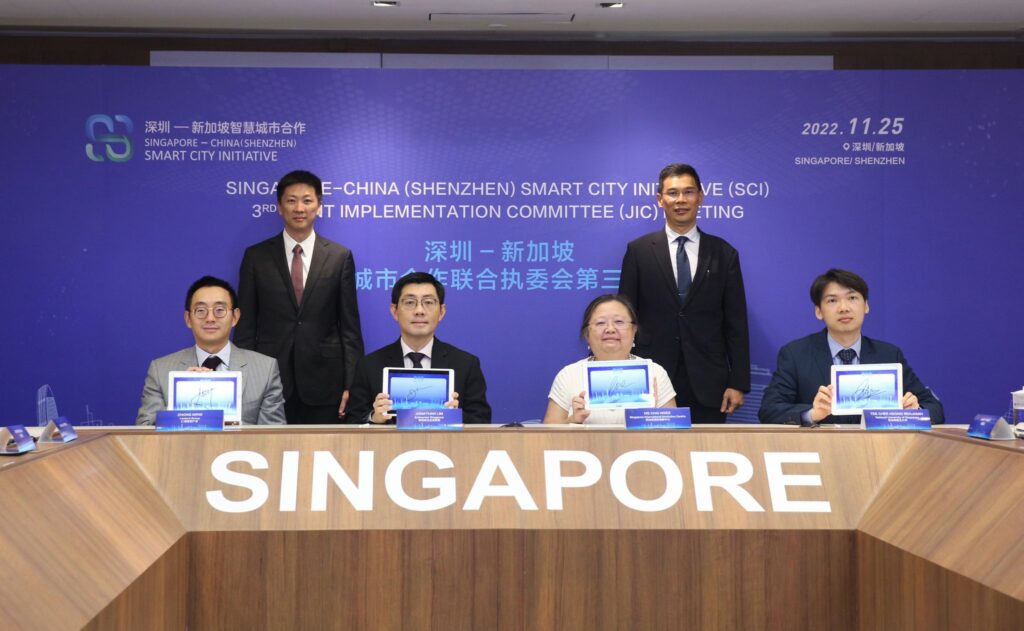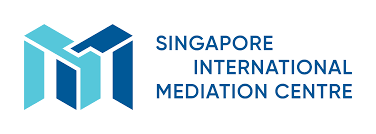Novel Singapore-Shenzhen hybrid dispute resolution mechanism combines the significant advantages of mediation with the ease of enforceability of arbitral awards

The SIMC-SCIA Med-Art Protocol and MOU extension was signed at the 3rd Singapore-Shenzhen Smart City Initiative Joint Implementation Committee meeting, co-chaired by Permanent Secretary for Ministry of Communications and Information, Mr Joseph Leong, and Mayor of Shenzhen Municipal People’s Government, Mr Qin Weizhong. The SIMC-SCIA Protocol and MOU was one of 14 new joint projects and 8 MOUs signed at the event on 25 November 2022. SIMC was represented by Board member Ms Ng Chai Ngee (first row, third from left). (photo credit: IMDA)
Singapore International Mediation Centre (SIMC) and Shenzhen Court of International Arbitration (SCIA) launched on 25 November 2022 the SIMC-SCIA Med-Arb Protocol (“MA Protocol”) to allow the recording of any settlement agreement resulting from mediation at SIMC as an arbitral award of the SCIA. This allows the award to be efficiently and effectively enforced in China and elsewhere[1], in the event enforcement is required, and obtain greater finality of outcomes. Such a mechanism would be particularly useful to parties with commercial disputes in China or where the subject matter of the dispute is located in China.
This MA Protocol is significant as it applies to all disputes submitted to SIMC for mediation, whether directly by parties, or via SCIA through commencement of arbitration proceedings. It represents an unprecedented level of formalised cooperation between SIMC and a foreign arbitral institution to offer a “mixed mode” mechanism, in line with global trends where mediation and arbitration are not mutually exclusive, but instead used in complementary ways to achieve a satisfactory outcome.
“This mixed-mode approach gives disputing parties the option to generate creative solutions, and the opportunity to resolve their differences effectively without protracted litigation or arbitration proceedings,” said Dr Liu Xiaochun, SCIA’s President.
“Parties benefit from all the benefits of mediation in arriving at a settlement agreement, such as flexibility, preservation of relationships, time- and cost-effectiveness, while having the assurance that once recorded as a consent arbitral award, it can be brought to court to be enforced, in the event of a default or failure to comply with the terms of the settlement agreement,” he added.
“Users will be able to benefit from the expertise of two high-quality dispute resolution institutions,” said Mr Chuan Wee Meng, SIMC’s CEO.
“SCIA’s recognition of SIMC is a testament to SIMC’s standing in the international dispute arena. Our cases enjoy a high settlement rate of 70-80% and most are amicably settled within a day, under the facilitation of an experienced mediator,” said Mr Chuan.
The MA Protocol was the result of a Memorandum of Understanding (MOU) that SCIA and SIMC entered into two years ago to explore opportunities for cooperation and collaboration on matters of common interest. Both sides agreed to extend this MOU for another two years.
The MOU provides that SCIA will include SIMC as its recognised mediation institution. If parties wish to mediate in the course of arbitration proceedings, SCIA will refer cases to SIMC in appropriate circumstances.
Under the MOU, SIMC and SCIA will also work together to jointly promote international mediation to serve the needs of businesses. This includes holding joint conferences, seminars, workshops and training sessions. They will also explore cooperation in the area of online dispute resolution and further collaboration in providing innovative dispute resolution services to cater to the needs of projects under the Singapore-China (Shenzhen) Smart City Initiative.
Parties are encouraged to contact SIMC for more information or a non-obligatory quotation of its services. If parties have an ongoing dispute and would like to consider utilising this “Med-Arb” service, SIMC would be pleased to manage the dispute resolution process together with SCIA.

